How To Organize Your Calender To Boost Productivity
Discover expert tips for organizing your calendar to boost productivity, manage time efficiently, and easily stay on top of your daily tasks.

Most of us have experienced that sinking feeling that accompanies an overwhelming calendar. A packed calendar can make anyone anxious, whether it's a flurry of deadlines, back-to-back meetings, or personal obligations. Organizing your calendar can help you regain control and reduce stress. This is especially true when you use artificial intelligence to track time and manage your schedule. By automating tedious tasks, AI time tracking can help you organize your calendar to boost productivity and achieve your goals. This article will teach you how to manage your calendar for better productivity, focusing on how AI time tracking can help.
Antispace's AI-based productivity operating system helps you organize your calendar and boost your productivity. By effectively managing your time and tasks, Antispace can help reduce your stress levels and create a more structured approach to your workload.
Why Organizing Your Calendar is Important

Staying organized helps many people maintain a productive and fulfilling life, regardless of their chosen career. Keeping a calendar is a great tool to help you improve your organization and enjoy work-life balance. Understanding how to schedule and organize your calendar can help you maximize your time and productivity. Plenty of good things come from taking the time to manage your calendar as well as you can. Here are a few of the most important ones.
Reduced Stress
Having better time management as a direct result of keeping your calendar highly organized gives you back more hours in the day you’d otherwise spend scrambling to get things done or planned. This means lower stress levels, which boosts productivity. With less stress also comes more capacity to take on exciting new projects. So, a well-handled calendar organization can create all kinds of workplace opportunities for you.
Get Quick Results with Efficient Calendar Planning
An organized calendar lets you know at a glance when you’re free when you’re busy, and what time I’ve blocked out for which tasks. That means quick, reliable planning. You’re asked to participate in a fascinating but very time-consuming project. You know you’ll need to free up at least a few weekly hours to dedicate to the project.
Smart Calendar Management
With good calendar management, you can quickly determine when to block time for the new project and when you’ll be too busy to work on it.
This helps other people working on the project to plan around you so they know when to contact you and when they can schedule meetings. That makes for a happier, more efficient team as well.
Improve Your Task Management Skills
Busy schedules can make it very tough to plan when you’ll finish your tasks – unless you can neatly slot them into a polished calendar. You’ll never have to worry about keeping teammates waiting anymore.
If you promise to send someone an eFax by a specific time, great calendar organization helps you make sure that you keep that promise, which leads to happy teammates through good task management. This also means impressing any clients or customers you might work with because they’ll know they can rely on you.
Related Reading
- AI Scheduling
- How to Use a Calendar Effectively
- Executive Calendar Management
- Meeting Conflict
- Meeting Deadlines
- How to Use AI for Project Management
- Automated Reminders
How to Organize Your Calender to Boost Productivity

Your calendar is a repository for various events, appointments, and tasks that all fall under different categories. For instance, if you have a doctor's appointment, it will likely fall under your “personal life” category.
Even so, if you have several medical appointments, it may help to separate them further to reduce the clutter on your calendar.
Organize with Calendar Categories
Organizing your calendar into categories helps create structure and eliminate the overlap. You can start by listing all the categories you want to include in your calendar. Aim for at least three broad categories:
- Personal life
- Work meetings
- Project deadlines
From there, you can create additional subcategories that will help reduce clutter even further.
Prioritize Calendar Scheduling Like You Would Tasks
The goal of organizing your calendar is to create structure and improve productivity. To do this, you should start by prioritizing your scheduling. Fill up your calendar with all the events you can think of that require reminders or specific meeting times. Next, look for overlapping events or appointments to reduce the clutter.
Many calendar applications allow you to make events “optional,” which helps you view your calendar without the optional events showing. This function will help you prioritize what you can and cannot miss.
Color- Coding Your Calendar to Find What You Need Faster
Next time you open your calendar, consider it a colorful visual of your life. Color-coding your categories makes your calendar aesthetically pleasing and helps you quickly find what you need. When you view your calendar in its entirety, you’ll want it to be easy on the eyes.
Organizing your categories by color will direct your eyes to what you know is pressing compared to what you consider less of a priority. Color coding is therapeutic and always the exciting part of organizing a calendar for some!
Turn Off Calendar Categories to Eliminate Clutter
If you find your calendar cluttered with too many categories, consider turning off some of them in your visual display. Most calendar apps allow you to show or hide specific categories as needed. This flexibility lets you focus on what matters most at a given time.
Incorporate Time Blocking for Focused Work
Time blocking is a powerful technique for ensuring dedicated focus on tasks without interruptions. Allocate specific blocks of time in your calendar for deep work, where you can concentrate on a single task or project without distractions.
These blocks can vary in length, depending on the task's complexity and your concentration span, but they can guard you from interruptions. This approach enhances productivity and helps maintain a high quality of work.
Schedule Breaks and Personal Time
An often overlooked aspect of calendar organization is the importance of scheduling breaks and personal time. Just as you allocate time for meetings and work tasks, it's crucial to block time for short breaks throughout the day and more extended periods for relaxation and personal activities.
These breaks are essential for maintaining mental health and ensuring long-term productivity. They prevent burnout and provide necessary intervals to recharge and refresh.
Utilize Technology for Automation and Integration
Take advantage of calendar applications and scheduling tools with automation and integration features. For instance, tools like Antispace can help streamline finding meeting times that work for everyone involved, reducing the back-and-forth communication typically required.
Integrating your work calendar with other apps, such as your email client, video conferencing, or project management tools, can enhance efficiency by automatically updating your calendar with new tasks or meetings, ensuring everything is in one place.
Share Your Calendar with Others
Privacy settings are always an option if you’d like to keep some events unseen. Still, it’s absolutely in your best interest to share your calendar with colleagues, family members, and clients.
This also helps avoid overlapping and overcommitting and adds an extra set of eyes for important reminders! A simple way to schedule a client meeting is to share your calendar and allow them to pick an open spot.
Antispace: The AI-Powered Productivity OS for Effortless Workflow Management
Antispace transforms your daily workflow with an AI-powered, gamified productivity operating system. Our platform seamlessly integrates with your essential tools: Email, Calendar, and Notes, while our AI assistant handles everything from email management to task organization.
Key features:
- Imaginative Email Responses: Automate and streamline email management.
- Automated Calendar Management: Schedule and organize meetings effortlessly.
- Enhanced Note-Taking: Capture and structure information efficiently.
- Streamlined Task Coordination: Keep projects on track with AI-powered organization.
- Reduced Context Switching: Minimize distractions and improve workflow efficiency.
- Virtual Executive Assistant: Let AI handle routine tasks so you can focus on what matters.
Whether you're brainstorming ideas, managing communications, or coordinating projects, Antispace turns productivity from a chore into an engaging experience.
Get started for free with one click today.
What to Avoid When Organizing Your Calendar

Everyone knows that meetings can be a drag. But did you know that a one-size-fits-all approach to meeting lengths can cause even more chaos and fatigue? Defaulting 30- or 60-minute meetings without considering the time needed for different discussions can lead to inefficient scheduling and wasted time.
Some meetings only need 15 minutes, while complex topics may require longer sessions. Be mindful of the necessary time and adjust meeting lengths to avoid wasting time.
Reminders Are Your Friends
Forgetting to set meeting reminders can lead to missed meetings and last-minute scrambling. At the same time, packing your schedule too tightly without buffer time between events can lead to burnout. Schedule short breaks to recharge, especially if you have multiple meetings in a row.
Don't Hoard Your Calendar
If you work with a team, keeping your calendar private or disorganized makes scheduling difficult for others. Use shared calendars or set your availability so colleagues can book time without excessive back-and-forth messages.
Consolidate Your Calendar
Managing separate calendars across different platforms (Google Calendar, Outlook, Apple Calendar, etc.) without syncing them can lead to double bookings and missed appointments. Use integrations or a single primary calendar to consolidate your schedule.
Avoid Back-to-Back Meetings
Stacking meetings back-to-back may seem efficient, but it often leads to fatigue and poor focus. If discussions run over time, you risk delaying everything on your calendar—schedule 5–10 minutes of breathing room between meetings to regroup and prepare for the next session.
Related Reading
- Calendar Automation
- AI Staff Scheduling
- Google Calendar AI
- AI Personal Assistants
- Best AI Task Manager
- AI Workflow Management
- Best AI Productivity Tools
- Top Calendar Apps
- Reclaim vs Motion
9 Best Calendar Organization Tools & Apps
1. Antispace: The AI-Powered Productivity Operating System
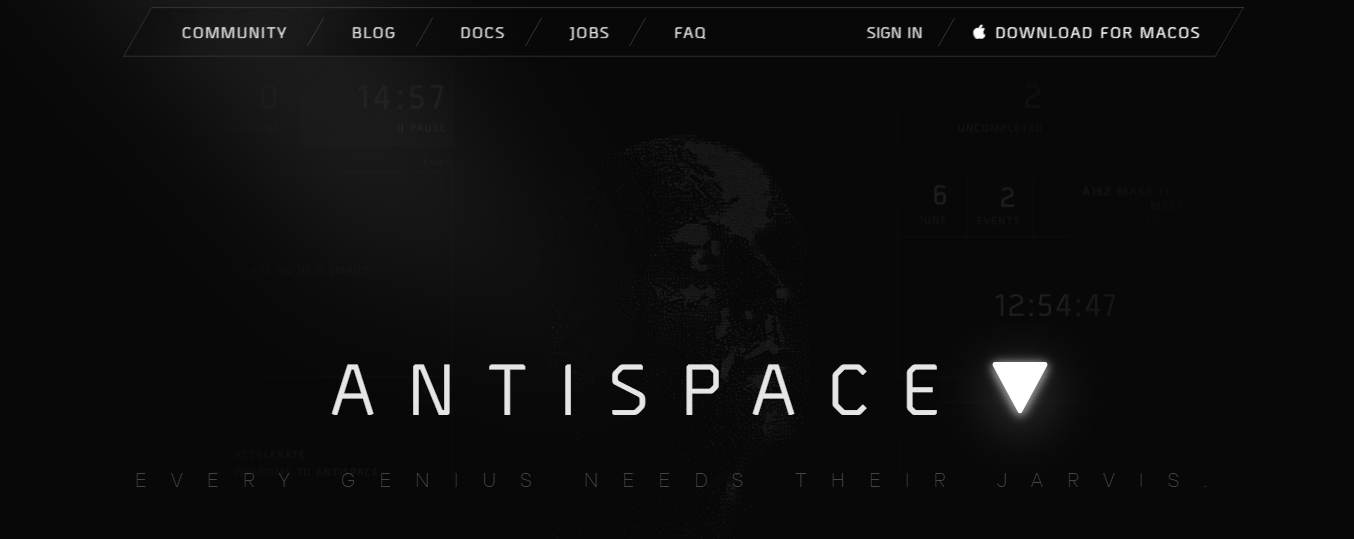
Antispace transforms your daily workflow with an AI-powered, gamified productivity operating system. Our platform seamlessly integrates with your essential tools: Email, Calendar, and Notes, while our AI assistant handles everything from email management to task organization.
Key features:
- Imaginative Email Responses: Automate and streamline email management.
- Automated Calendar Management: Schedule and organize meetings effortlessly.
- Enhanced Note-Taking: Capture and structure information efficiently.
- Streamlined Task Coordination: Keep projects on track with AI-powered organization.
- Reduced Context Switching: Minimize distractions and improve workflow efficiency.
- Virtual Executive Assistant: Let AI handle routine tasks so you can focus on what matters.
Whether you're brainstorming ideas, managing communications, or coordinating projects, Antispace turns productivity from a chore into an engaging experience.
Get started for free with one click today.
2. Google Calendar: The Familiar, Friendly Calendar App
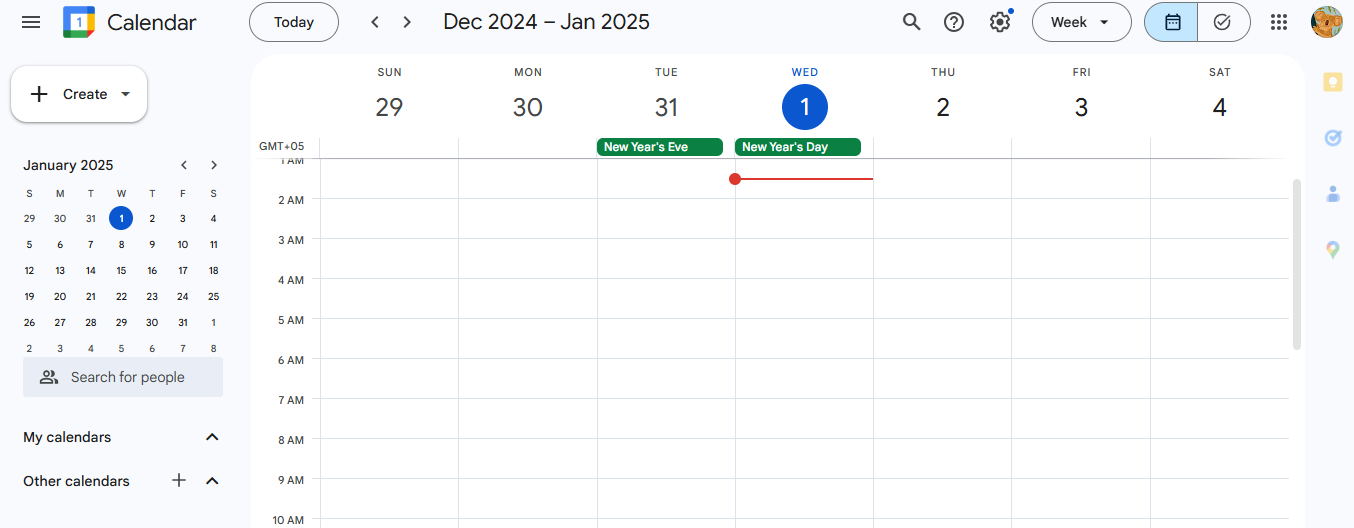
Google Calendar strikes the right balance as a task manager and scheduler. It's one of the most familiar and favorite calendar apps, categorizing events, offices, tasks, and appointment slots. Plus, arranging a Google calendar in the office or standing in line at Starbucks is easy!
Pros
- Users can add new HEX colors to customize a calendar's background.
- Users can set primary and secondary time zones for entire calendars—Google Calendar templates to optimize workflows.
Cons
- This calendar app has no desktop version for macOS or Windows 10.
3. Calendly: The Intelligent Scheduler
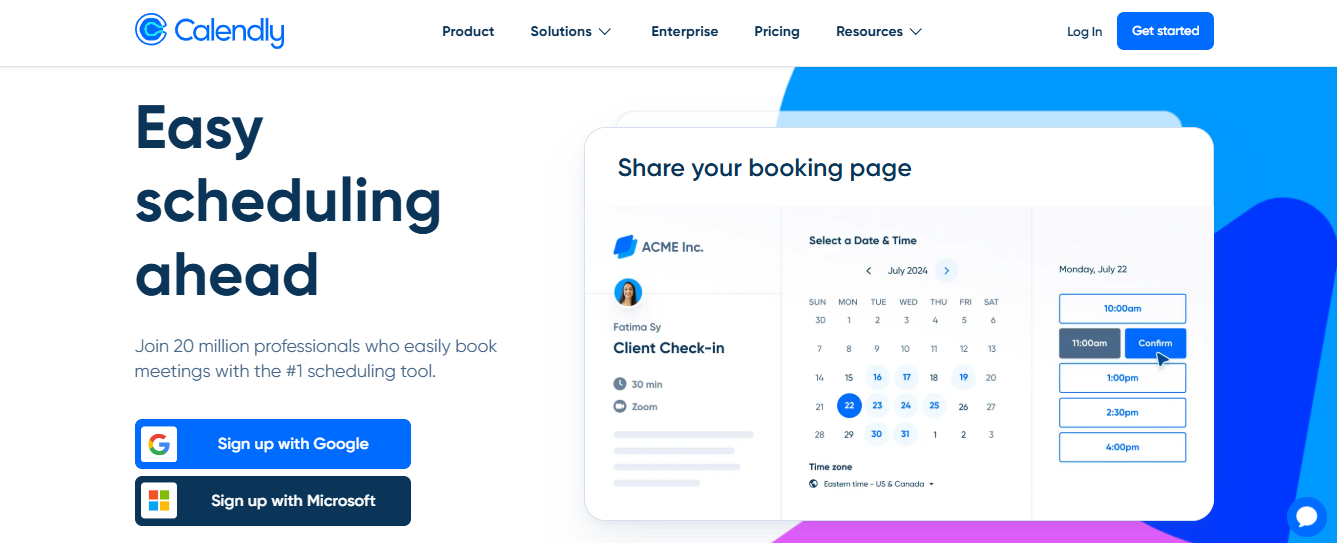
Calendly is an intelligent scheduler software that automates manual busywork by booking meetings and events at the right time and place. It can connect with your organization's—Google, Outlook, or iCal calendars for a stress-free experience between hosts and invitees.
Pros
Users can add Calendly to their website or email to streamline scheduling. Users can automate communications before and after meetings. Calendly offers tons of integrations, such as:
- ClickUp
- Slack
Cons
This calendar app can integrate with popular tools such as Zoom and Zapier, but it can quickly become complicated for invitees if they go through hoops to connect.
4. Baluu: The Booking System for Small Businesses

Baluu comes in at number 4 on our list. This fully fledged booking system and website builder is great for small businesses booking online. You can connect your bank account or Stripe to accept payments and sell products with their e-commerce features.
Pros
Build an out-of-the-box booking website in minutes and start accepting payments and bookings online. Integrates into any existing website as an iframe. Syncs with all the major calendar platforms (Google, Outlook, etc.)
Cons
There is no Baluu app yet.
5. SavvyCal: The User-Friendly Scheduler

SavvyCal is a scheduling tool that allows you to toggle between their calendar and your list of time slots. This overlay feature puts users in the driver's seat to easily find mutual availability.
SavvyCal syncs with popular calendars and other scheduling workflow tools to create events and check for times while you're busy.
Pros
Users can present ranked availability windows to encourage recipients to pick the optimal time. Users can limit how many meetings can be booked per day, week, or month to reserve time for deep work.
Cons
This calendar app does not have a free plan.
6. Any.do: The Task Management Calendar
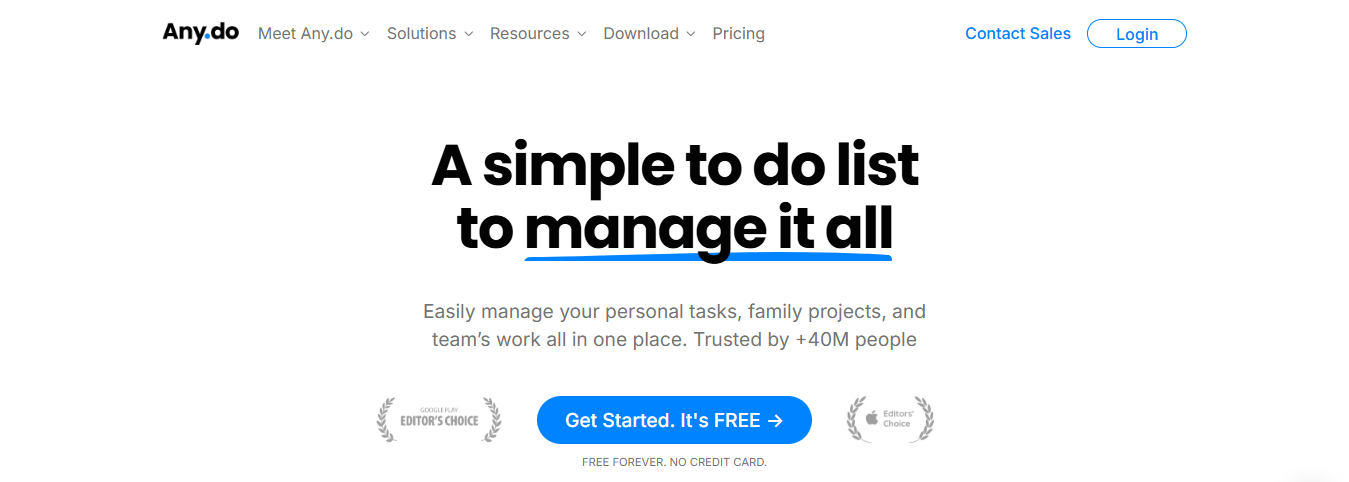
Any.do's calendar feature aims to help users control their day, week, and month with events and tasks in a single view.
The interface is clean and easy to use, allowing other calendars such as Google Calendar, iCloud, and Outlook with no hassle. Even so, Any.do doesn't currently offer any free plans.
Pros
WhatsApp messages can be turned into tasks and reminders using natural language. Users can choose from different themes and backgrounds to match their preferred style.
Cons
This calendar app's task management functionality is limited to basic functionalities.
7. Apple Calendar: The Basic Calendar App
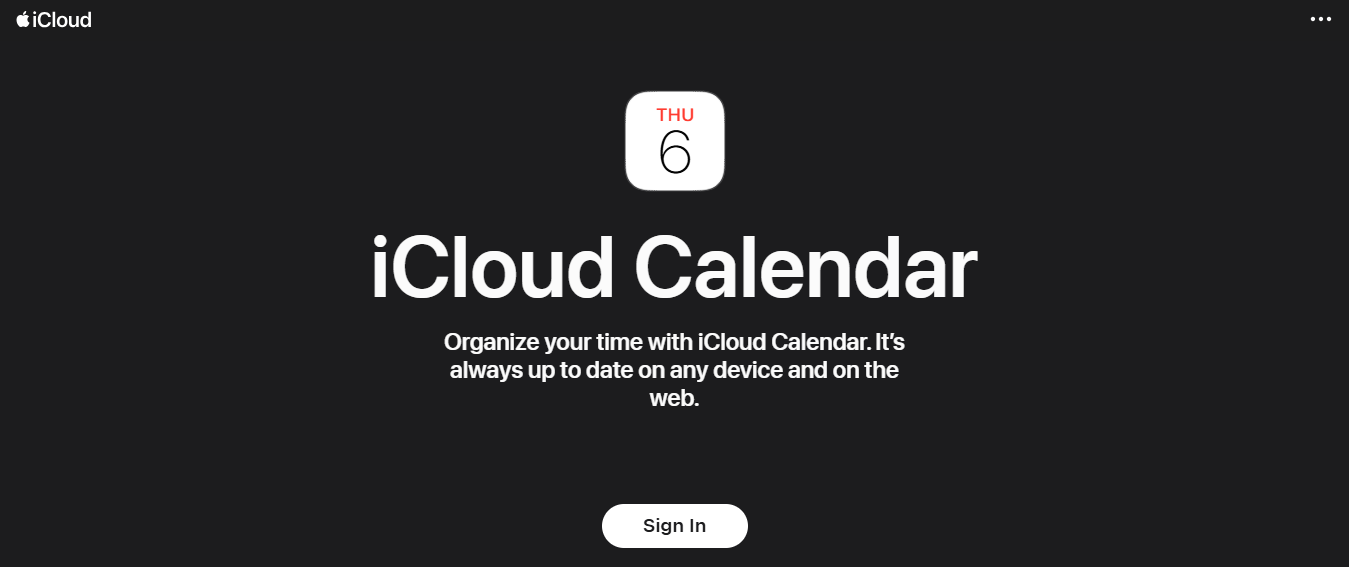
If you're an Apple user, you'll know that the Apple Calendar is pre-installed on every iOS and macOS device (including the Apple Watch) so users can access their calendar accounts in one place.
While this basic calendar app can cover scheduling needs and quick event setup, it lacks advanced features for more customization.
Pros
Users can view all or specific calendars in a single window. They can also add an event's location address to receive Time to Leave notifications based on how long it will take to reach the destination.
Cons
This calendar app prevents you from inviting people to an event if their email addresses are not saved in your phone's contact list.
8. Microsoft Outlook Calendar: The Overachiever
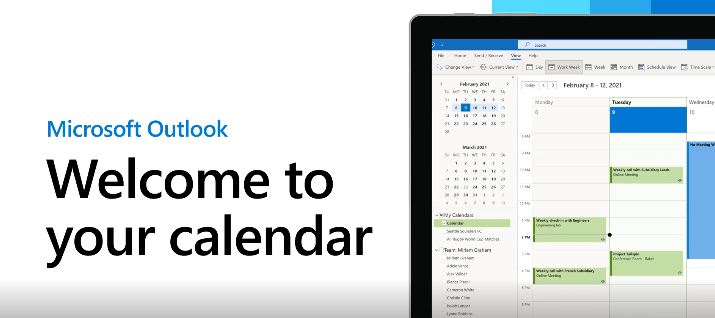
Microsoft Outlook Calendar is a calendar and scheduling tool for tracking personal and work events. Its shared calendar feature allows you to access your teammates' calendars and manage their schedules.
Pros
Users can create calendars that display a group of people's schedules and view multiple calendars.
Cons
This calendar app has too much functionality that can get in the way of simple scheduling needs.
9. Acuity Scheduling: The Scheduling Tool for Squarespace
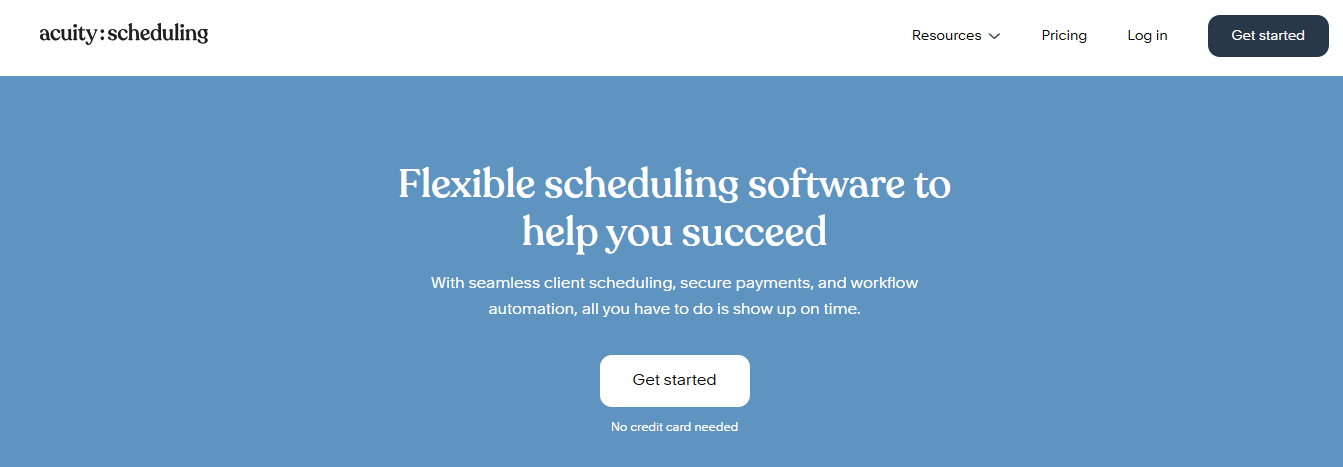
Like Calendly, Acuity Scheduling is a tool specially designed for Squarespace websites. Clients begin scheduling by choosing the appointment type they want to book.
If you are hosting group classes for calligraphy or yoga, the Class feature allows multiple people to book services at a specific time.
Pros
Users can create and edit as many appointment types as desired. Users can set scheduling limits to choose if and when clients can book, edit, or cancel their appointments.
Cons
This feature is an add-on for Squarespace websites and not a standalone tool.
Let Our AI-based Productivity Operating System Handle Your Boring Work
Organizing tasks into sections, categories, and priority levels helps you manage the chaos of a busy life. With calendar organization, you can break down your upcoming deadlines into manageable chunks.
From there, you can allocate specific times to work on each section to help you overcome that looming dread. Task organization also helps you to make sense of your day-to-day responsibilities. Not everything requires immediate attention.
Boost Productivity with Antispace AI
With an organized approach, you can identify what needs to be done now and what can wait. This takes the pressure off your calendar and allows for a more natural flow of productivity.
Antispace helps you organize your tasks to conquer your next big project confidently. Our AI productivity assistant automatically identifies and organizes your functions so you can get straight to work without being overwhelmed.
Getting to the Bottom of Calendar Management
Organizing calendar tasks is similar to organizing your email. It can be like creating a framework for your upcoming deadlines and responsibilities. Calendar management helps you to break down your tasks into time segments and build a structure for your productivity.
This helps to alleviate the stress of looming deadlines by providing a clear roadmap for tackling your next big project.
Automate Task Scheduling with Antispace
With Antispace, you can seamlessly organize your tasks and create calendar events to ensure a smooth workflow. Our AI productivity assistant can even automate this process for you, identifying tasks and creating calendar events to help you get started on your next project.
The Importance of Email Organization
Your email inbox can quickly become disorganized, especially when you’re gearing up for a big project. In the weeks or days leading up to a deadline, it’s common to receive a flurry of emails containing instructions, updates, and communications from team members.
Without organization, important information can get lost, increasing the chances of missing crucial details affecting your project. Organizing emails before tackling a project can help you identify the most relevant communications to your work.
Innovative Email Management with Antispace
Antispace can help you organize your emails with ease. Our AI productivity assistant can sort and filter your emails, automatically identify task and project-related communications so you can focus on what matters, and even draft responses to help you manage your communications.